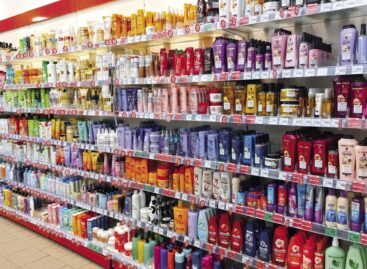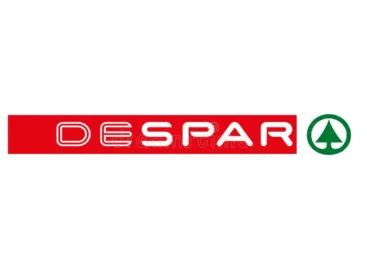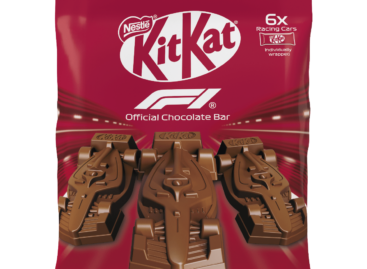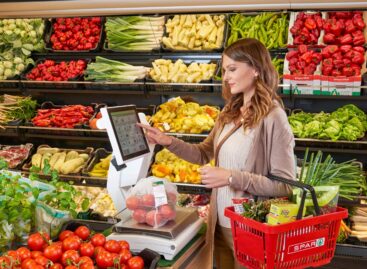Cereal bars, mueslis and breakfast cereals
The cereal market consists of cereal bars, mueslis and breakfast cereals. Shoppers have become price-sensitive recently, because of the growing inflation, and this had a negative effect on breakfast cereal and muesli sales.
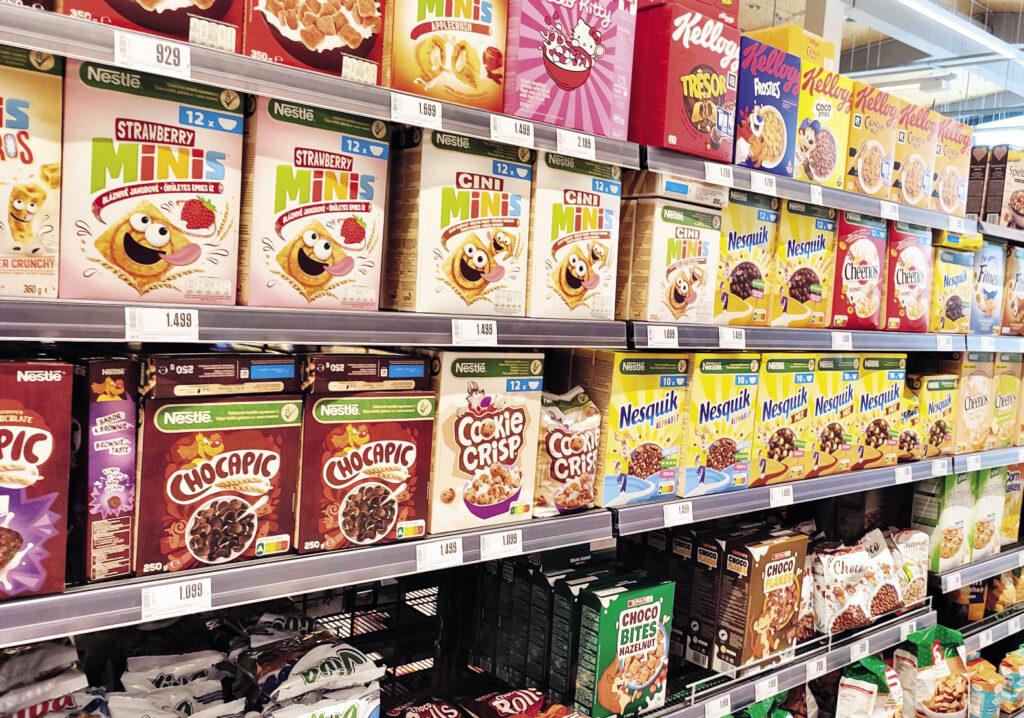
Cereals prepare for next year with changed formulas and new, exciting flavours
This article is available for reading in Trade magazin 2023/6-7.
Levente Németh, breakfast cereal brand manager of Nestlé Hungária Kft.:

Levente Németh
brand manager
Nestlé Hungária
“In these categories volume sales dropped considerably, and there were months when there was a double-digit sales decrease. Compared with the same period of 2022, the inflation of these products is around 45%, therefore value sales are growing, but consumption is reducing”.
Private label prices have also elevated, actually even more than that of branded products, still, the former were able to increase their market share.
Cereal bars kept their positions
Unlike mueslis and breakfast cereals, cereal bar sales didn’t suffer a loss last year. In part because these products are cheaper, and typically they are purchased impulsively, which is less influenced by rising prices. It also helps this segment that compared with chocolate bars and chilled dairy snacks, they are still available at lower prices. Among cereal bars the inflation level was more than 50%. Private label products didn’t push forward in this segment, as branded products could increase their market share, thanks to new innovations.
Exciting flavours on the horizon
Just recently Nestlé has rolled out a new innovation: a crispy brownie variant of Chocapic breakfast cereal. With another big Nestlé brand, the company is preparing with a major product launch for the start of the school year. Advertising campaigns concentrate on the main ingredients of products, whole cereals, thanks to which high fibre content is guaranteed. Digital media is more and more important in Nestlé’s communication, so the products can now be found on all big social media platforms.
Healthier recipes
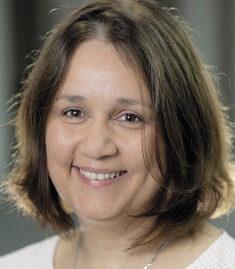
Szilvia Hajduvári
head of marketing
Cerbona
Szilvia Hajduvári, head of marketing at Cerbona Élelmiszergyártó Zrt., cited NIQ (formerly Nielsen IQ) data when she told our magazine that the cereal market grew by 23% in value last year, and volume sales only dropped a little.
“I wouldn’t say shoppers are downtiering, but discounters have been gaining ground for years. It is needless to say that this has entailed a growth for private labels, especially in the muesli, oatmeal and breakfast cereal categories”
– added Cerbona’s head of marketing. The company’s biggest product launch has been the repositioning of the updated muesli and Cerbona breakfast cereal ranges. Cerbona reduced the sugar content of mueslis, and they changed the recipe of breakfast cereals, plus added two new products to the portfolio.
Based on oatmeal
GOF Hungary has just entered the cereal market recently.
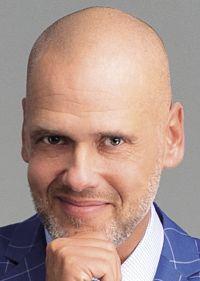
Tamás Bozó
key account manager
GOF Hungary
Tamás Bozó, key account manager of GOF Hungary Kft.:
“As a new player in the market, what we see is that sales are dropping in our category too, in the gluten-free segment. Because of the rising prices shoppers purchase less of these, while those who used to buy gluten-free products out of health consciousness are returning to cheaper alternative foods”.
The company makes oatmeal products and currently they are working on the launch of a new innovation: a 3-product gluten-free granola range, which will appear on store shelves in mid-June. Already this year they will come out with new breakfast cereals too.
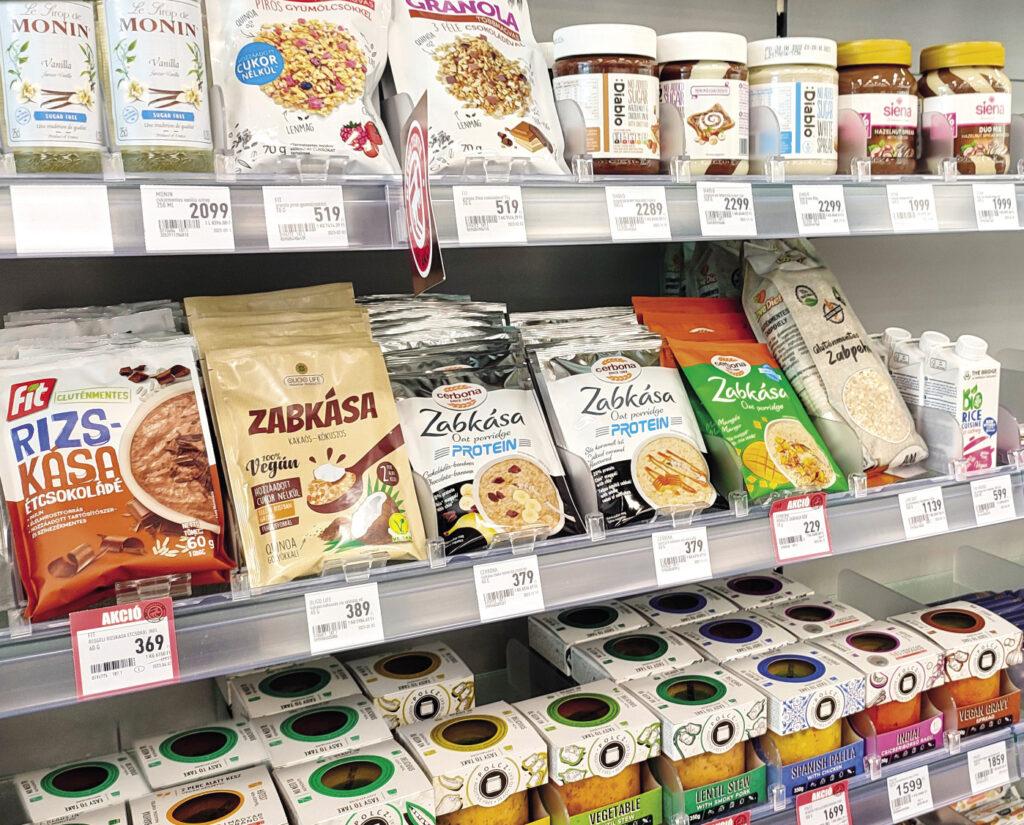
Sales of granolas and oat meals dropped to a lesser extent than those of cereals
Premium, but not luxury

Zsolt Babocsai
co-founder
Viblance Hungary
The buyers of Viblance products are more brand loyal and less price-sensitive than the average consumer. This is the reason why the company’s volume sales didn’t decrease.
Zsolt Babocsai, co-founder of Viblance:
“It must be added, though, that at a time when the food inflation was over 40%, we only increased prices by 10%”.
Last year the company’s big success story was the granola bar, which performed above expectations. In the Christmas period granola bonbon was also a big hit, in the category of no added sugar Christmas candy. In the first quarter of the year Viblance put granola and porridge products with added protein on the market. //
Only sesame and muesli bar sales grew
According to the NIQ (formerly NielsenIQ) retail index, the market of cereals represented a value of over HUF 36bn between March 2022 and February 2023. Like-for-like value sales grew by 27%, but volume sales were down 3% at a bit less than 15,000 tonnes.
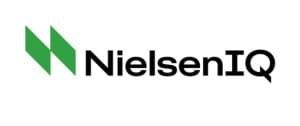

Guest writer:
Misheel Baigalkhuu
junior analytic insights associate
NielsenIQ
In the examined period breakfast cereal and cereal bar sales were worth HUF 15bn, 27% more than in the base period, but volume sales dropped 2% to about 9,000 tonnes. Muesli value sales increased by 18% to approximately HUF 6bn, but volume sales reduced by 14%.
Sesame and muesli bar value sales approached HUF 15bn, having grown by 30%; what is more, volume sales also improved in this category, as Hungarians purchased nearly 3,000 tonnes, which was 4% more than a year earlier. The category has shifted towards manufacturer brands with a HUF 5,900 average price, with their value share climbing from 63% to 65%. Sales of these branded products jumped 36% in value and 12% in volume. //
Related news
From routine to ritual
🎧 Hallgasd a cikket: Lejátszás Szünet Folytatás Leállítás Nyelv: Auto…
Read more >Related news
MBH Analysis Center: The Hungarian economy may accelerate again in 2026, but the Iranian war carries serious risks
🎧 Hallgasd a cikket: Lejátszás Szünet Folytatás Leállítás Nyelv: Auto…
Read more >SPAR is preparing for an Easter rush: it is filling its stores with 570 tons of smoked meat products
🎧 Hallgasd a cikket: Lejátszás Szünet Folytatás Leállítás Nyelv: Auto…
Read more >Focus on the domestic fishing sector at SIRHA Budapest
🎧 Hallgasd a cikket: Lejátszás Szünet Folytatás Leállítás Nyelv: Auto…
Read more >


